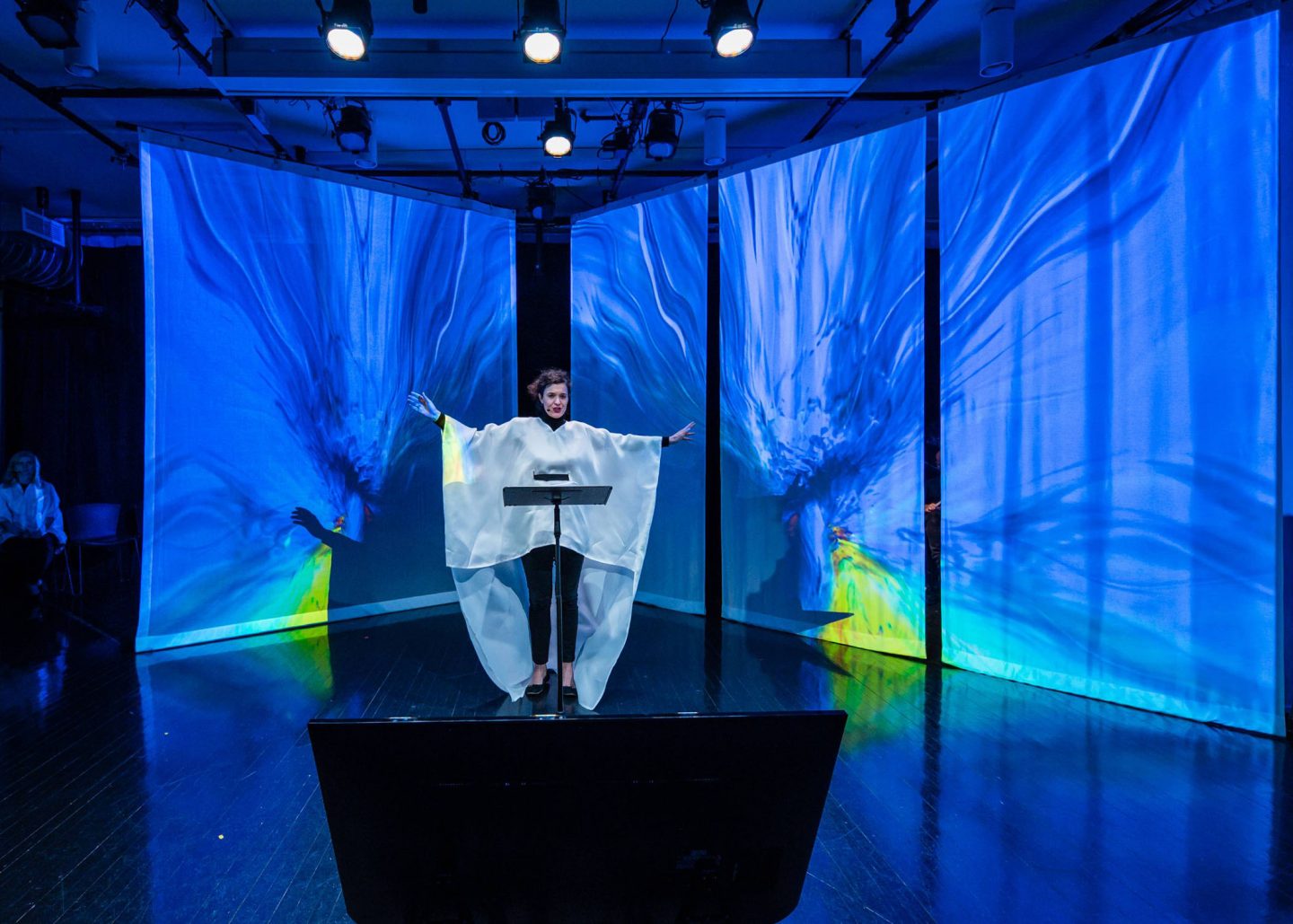
A New Experimental Opera Combines Music, Philosophy, and Performance
Opera has been around for more than 400 years and has consistently stayed true to its origins. Through the years, musicians have composed works that use opera as a starting point but fold in different genres and styles to create artistic pieces that advance the form and excite audiences.
The Art of Change launched in 2016, when Jean-Baptiste Barrière began a residency at Mannes School of Music. The piece, which premiered at The New School on January 16, 2020, is an interactive, participative, generative visual and musical installation about what needs to be changed in the world. Featuring the work of students and faculty from throughout The New School, the experimental opera fuses live performance and philosophy into a new kind of work that is equal parts opera, performance art, and salonlike gathering of socially conscious artists and thinkers.
“I imagined to develop The Art of Change as a new, original stage form, a sort of contemporary opera, including intellectuals delivering live statements about ‘what needs to be changed,’ as well as singers and instrumentalists sight-reading musical scores generated from the speeches and performing it live,” says Barrière. “The idea is to extract the speech melody and rhythm and transform them through compositional rules: Speech not only becomes music, but can be developed and proliferate into a pure musical form.”
Improvisation, collective authoring, and spontaneity take center stage in the innovative piece, which uses software designed by Barrière to capture the melodic and rhythmic pattern of speech. The dialogue is recorded, processed, and turned into a spontaneously generated score that is interpreted and performed on the fly. Onstage with student singers, instrumentalists, and actors from the College of Performing Arts will be celebrated performers and thinkers like Joan La Barbara and Simon Critchley.
In true New School fashion, The Art of Change is a highly collaborative effort, featuring the work of Chiara Bottici, an associate professor of philosophy at The New School for Social Research, who wrote the libretto, and Timo Rissanen, an associate professor of fashion design and sustainability at Parsons School of Design, who designed the costumes.
“From long experience with collaboration, what I find most important is to meet all sorts of different personalities, with their own experiences and talents, who shake your habits and possibly too automatic ways of thinking,” says Barrière. “Students are always ‘shaking the tree,’ making you question your habits, certitudes, and automatisms and reconsider all the time why you think and/or do things the way you do. They certainly learn from the experience, but we learn at least as much as they do!”
Bottici, who trained as an opera singer before turning to philosophy and writing, created the libretto after the initial text was developed through an open-source process that unfolded on Public Seminar — an online journal of ideas, politics, and culture. The libretto begins with a synopsis that places the audience and performers within a city that has decided to radically re-organize itself “by adopting the principle of accelerated change and apply[ing] it to all and every aspect of social life. The result is a utopian (or dystopian) world that may (or may not) turn out to be ours.”
“What I did to find the beginning of the story was taking the idea of change and pushing it to the complete extreme, so that it would reveal its inherent metaphysical structure,” says Bottici. “So I started to work with that idea, inhabit that space. What the opera does is bring out possible contours. We published the first version of the libretto; we did the prelude; we asked people to intervene and suggest. And in this process, what became clear was that, well, maybe that world is not a distant utopian or dystopian world; maybe it’s actually the world we are living in.”
The opera showcases a utopia that can serve as a magnifying glass for audiences, helping them understand their own situations while they enjoy the made-up world on stage. Bottici hopes that people leave the opera with questions about the imagined world they just saw onstage, and the one they currently live in.
“I hope that they discover all sorts of new ideas which make them think about what needs to be changed in our world,” says Barrière. “Moreover, I hope it convinces them that it is time to move forward and actually change this world, because it needs it!”